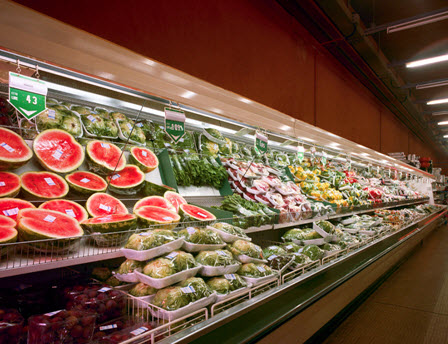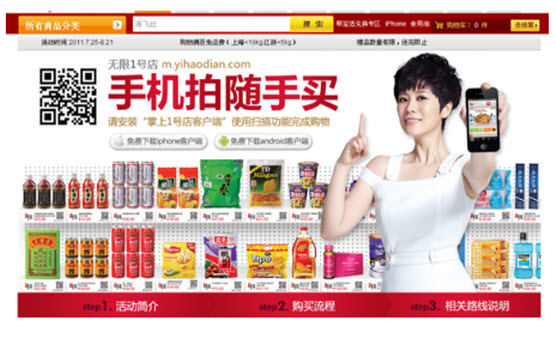Kraft Foods tests capabilities of mobile marketing tools
Consumer goods giant Kraft Foods has been quietly trialing NFC technology and QR codes over the last few months. The company has taken note of the growing popularity surrounding NFC technology and has been using tags embedded with NFC chips to market certain products. These NFC tags have been used alongside QR codes which have been implemented for the same purpose. The two marketing tools were pitted against one another to determine which was more effective with consumers.
NFC wins in popularity, but not in accessibility
Kraft Foods has finished its trail and found that NFC tags are indeed more popular than QR codes. According to Kraft Foods, NFC tags are more attuned to mobile shoppers than QR codes because they are easier to use. The trial took place at five, high traffic grocery stores in San Francisco, California. A multitude of Kraft products, as well as those from its subsidiaries, featured both NFC tags and QR codes that provided shoppers with information regarding the products and, in some cases, discounts. Kraft Foods notes that engagement with the NFC tags was nearly twelve times greater than engagement with QR codes.
NFC tags only available to those with capable mobile devices
NFC tags may have been able to beat out QR codes in terms of popularity, but they were not able to compete in terms of affordability and accessibility. NFC tags are somewhat more expensive than QR codes, considering the fact that QR codes can be generated for free. The codes can also be scanned by any mobile device that has a camera and a code scanning application. NFC tags can only be accessed by NFC-enabled mobile devices, which are still very rare. Furthermore, using NFC tags would alienate the entirety of consumers with Apple mobile devices, as none of these devices supports NFC technology.
QR codes remain leader of mobile marketing tools
While NFC may be a more engaging marketing tool than QR codes, the audience for NFC tags is still very limited. For this reason, QR codes are expected to remain the most favored mobile marketing tool in the business, at least until more consumers get their hands on NFC-enabled mobile devices. Few companies have been won over by the advertising prospects of NFC technology, nonetheless, so QR codes may remain dominant even after NFC-enabled devices become popular.


